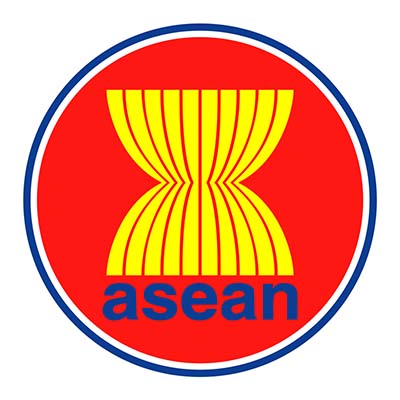The Association of Southeast Asian Nations, or ASEAN, was established on 8 August 1967, Thailand, with the signing of the ASEAN Declaration (Bangkok Declaration) by the Founding Fathers of ASEAN in Bangkok: Indonesia, Malaysia, the Philippines, Singapore, and Thailand.
Brunei Darussalam joined ASEAN on 7 January 1984, followed by Viet Nam on 28 July 1995, Lao PDR and Myanmar on 23 July 1997, and Cambodia on 30 April 1999, making up what is today the ten Member States of ASEAN. The ASEAN Summit in May this year decided to admit Timor-Leste as the 11th Member of ASEAN at the next Summit in October.
Ambassador KIYA Masahiko, Ambassador of Japan to ASEAN sheds light on Japan’s ongoing efforts to bolster cooperation across ASEAN, highlighting the significance of regional summits, cultural exchanges, and international initiatives.
ASEAN-Japan Collaborations
Ambassador Kiya: We are very active in our role in strengthening ASEAN-Japan relations and play a pivotal role in these efforts. In December 2023, the Commemorative Summit for the 50th Year of ASEAN-Japan Friendship and Cooperation was held in Tokyo. The Joint Vision Statement, entitled “Trusted Partners”, and its Implementation Plan has been adopted as the outcome documents.
Reflecting on our collaborations, we have three main pillars for the vision and the plan: heart-to-heart partners across generations, partners for co-creation of economy and society for the future, and partners for peace and stability. These partnerships aim to foster peace and prosperity in the Indo-Pacific.
Japan remains committed to fostering deeper regional integration and collaboration. The emphasis on sustainability, technological innovation, and cultural exchange underscores the region’s collective aspiration for a prosperous future—one defined by shared progress and mutual understanding.
KIYA Masahiko, Ambassador of Japan to ASEAN
Sustainability and Innovation
A significant portion of our efforts center on sustainability and technological innovation. Japan has prioritized green energy projects, decarbonization efforts, and community-centred initiatives. Under Lao’s ASEAN chairmanship last year, numerous events and workshops were organized to advance these aims.
The Asia Zero Emission Community (AZEC) Leaders Meeting held in Vientiane last October exemplified this commitment, emphasizing decarbonization, economic growth and energy security,
Key initiatives include promoting science and technology exchanges; study programs that bring ASEAN students to Japan and Japanese students to ASEAN – further strengthening educational and cultural ties.
ASEAN Pavilion on the 2025 World Expo Osaka | © The ASEAN Secretariat/Flickr
Leadership in ASEAN
Malaysia assumed the chairmanship of the ASEAN from January this year. During the first ASEAN summit in May, the ASEAN Community Vision 2045—a document aiming to foster a resilient, innovative, dynamic, and people-centred AESAN by 2045— was adopted along with 4 Strategic Plans.
Malaysia’s chairmanship is set to continue until December 2025, after which the Philippines will take over, starting January 2026.
Expo 2025 Osaka, Kansai, Japan: Showcasing Japan’s Potential
The ongoing Expo 2025 in Japan has attracted over four million visitors (*as of the day of the interview. The number of visitors has exceeded 15 Million as of today.). The Expo 2025 provides Japan with a unique platform to bring together technological advancements and innovative solutions that benefit the world.
The opening of the Expo 2025 on April 13 was attended by the Secretary-General of ASEAN, Dr. Kao Kim Hourn, emphasizing the importance of the event for this region.
The ASEAN Pavilion and Future Engagement
The ASEAN Pavilion, organized by the ASEAN Secretariat with support from the Japan-ASEAN Integration Fund (JAIF), showcases the region’s diversity and dynamism. Themed “Building Bridges” visitors can learn about ASEAN through engaging exhibits and interactive displays.
The ASEAN pavilion also plays a role of a regional platform to promote the pavilions of ASEAN Member States. One way this role is carried out is through the “ASEAN Trail Challenge”, where participants collect stamps on their “Passports” by visiting various ASEAN pavilions. This is creating an educational experience about participating countries and regions.
Fostering deeper regional integration
Japan remains committed to fostering deeper regional integration and collaboration. The emphasis on sustainability, technological innovation, and cultural exchange underscores the region’s collective aspiration for a prosperous future—one defined by shared progress and mutual understanding.












